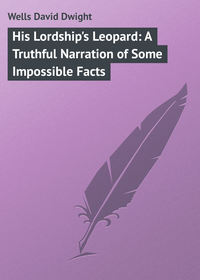His Lordship's Leopard: A Truthful Narration of Some Impossible Facts

Полная версия
Добавить В библиотекуАвторизуйтесь, чтобы добавить
Добавить отзывДобавить цитату
His Lordship's Leopard: A Truthful Narration of Some Impossible Facts
Авторизация